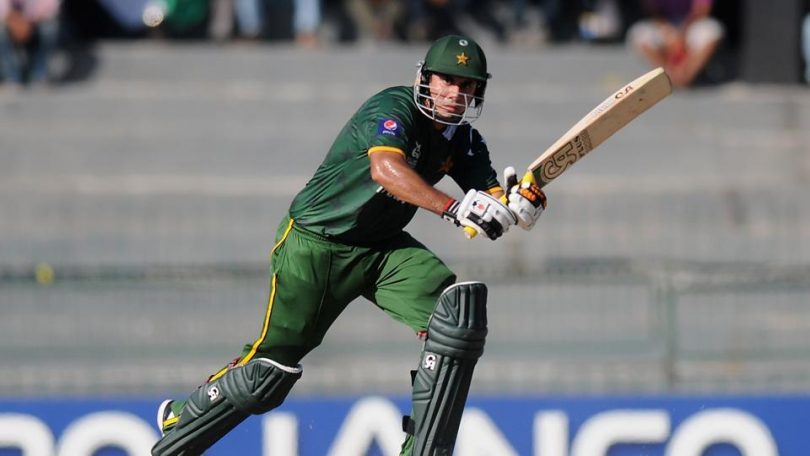Former Pakistan batsman Nasir Jamshed has been sentenced to 17 months in jail on Friday after admitting guilt for his role in the spot-fixing scandal. Jamshed admitted his role in the conspiracy to bribe fellow cricketers along with British nationals Yousef Anwar and Mohammed Ijaz. Jamshed was arrested and after an investigation by National Crime Agency (NCA), it was revealed that Jamshed got a 17-month jail sentence; Anwar was given 40 months, while Ijaz was handed 30 months.
33-year-old Jamshed was already banned by the Pakistan Cricket Board (PCB) for 10 years in August 2018.
Jamshed pleaded guilty to a conspiracy to bribe fellow cricketers as part of a Twenty20 spot-fixing coup. Jamshed had originally denied being involved in a plan focused on the Pakistan Super League but changed his plea during a court hearing in Manchester. Two other men, Yousef Anwar, 36, and Mohammed Ijaz, 34, admitted last week to offering financial advantages to PSL players with the intention of inducing them to perform improperly by failing to play competitively in good faith.
All three will be sentenced on a date to be fixed in February.
Prosecutors told the court an undercover police officer had unearthed evidence by pretending to be a member of a corrupt betting syndicate.
The policeman’s efforts then led to the discovery of an attempted fix in the Bangladesh Premier League (BPL) late in 2016 and an actual fix in the PSL in February 2017.
In both cases, an opening batsman in the Twenty20 tournaments had agreed to not score runs from the first two balls of an over in return for payment.
After the Manchester Crown Court handed the sentence, Jamshed’s wife Samara Afzal issued a statement, narrating the “pain and humiliation” that her husband’s actions had caused to their family.
“Nasir could have had a bright future had he worked hard and been committed to the sport than gave him so much, but he took a short cut and lost everything, his career, status, respect and freedom,” she was quoted as saying by ESPNcricinfo.
“He would have got UK nationality and played county cricket, and he threw his chance away.
“He would do anything to turn the clock back and not lose everything, especially his daughter who he is very close to, but it’s too late for him. I hope all cricketers look at his example as a deterrent against corruption.”
In December last year, it came to light that it was an undercover police officer, who had unearthed evidence by pretending to be a member of a corrupt betting syndicate.
The policeman’s efforts then led to the discovery of an attempted fix in the Bangladesh Premier League (BPL) late in 2016 and an actual fix in the PSL in February 2017.
In both cases, an opening batsman in the Twenty20 tournaments had agreed to not score runs from the first two balls of an over in return for payment.
Jamshed was said to be the target of bribery in Bangladesh before turning perpetrator as a go-between urging other players to spot-fix in a PSL match between Islamabad United and Peshawar Zalmi in Dubai on February 9.
He had persuaded Sharjeel Khan to play out two made-to-order dot-balls off the first two balls of Islamabad’s second over. Sharjeel was later banned for five years by the PCB, as was Khalid Latif, another player whom Jamshed had recruited for a subsequent fix.
Britain’s National Crime Agency (NCA) also said how Anwar and Ijaz had developed a system by which they would charge USD 39,450 per fix with half of the sum going to the player.
Jamshed has played 2 Tests, 48 ODIs and 18 T20 Internationals for Pakistan.







